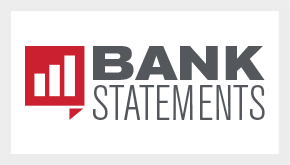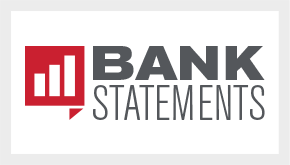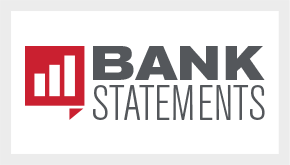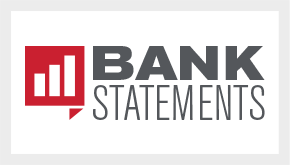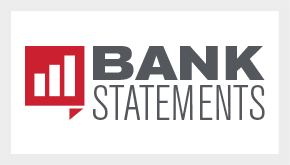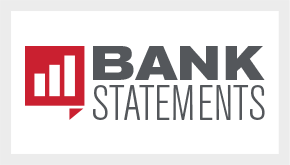Competitive Inequality: State-Chartered Banks Targeted by Attempts to Limit Interstate Lending Rights
On July 1, 2024, Colorado will become the latest jurisdiction to implement a law aimed at stopping state-chartered banks from setting interest rates on certain loans in the same way – and at the same levels – as their national bank competitors.
The Colorado law and other similar pending state legislation are aimed at stopping the abuses of “rent-a-charter” arrangements (explained below) that allow nonbanks to skirt state usury limits by contracting with banks. However, these initiatives will have a far broader impact on the U.S. dual banking system by burdening state-chartered banks engaged only in traditional interstate bank lending practices (i.e., not rent-a-charter arrangements) with compliance challenges inapplicable to their national bank peers.
Colorado and Other Jurisdictions. With its new law, Colorado will join Iowa and Puerto Rico as the only U.S. jurisdictions attempting to “opt out” of a 1980 federal law (the Depository Institution Deregulation and Monetary Control Act or DIDMCA)[i] that permits state-chartered banks to “export” interest rates like their national bank counterparts.[ii] Minnesota, Rhode Island and the District of Columbia are currently considering similar legislation to attempt to opt out of DIDMCA’s rate exportation provisions. Also, Iowa has recently become more aggressive in enforcing its 1980 opt-out law.[iii]
DIDMCA “Rate Exportation.” DIDMCA “rate exportation” allows each state-chartered bank to use the interest rates authorized by the states “where the bank is located” (i.e., the states in which those banks have their main offices or branches)[iv] for loans to borrowers situated in other states.[v] The effect of DIDMCA and the ability of state-chartered banks to export interest rates is addressed in detail by FDIC General Counsel’s Opinion Nos. 10 and 11, published in 1998 and 12 CFR Part 331.[vi]
State Ability to Opt Out of DIDMCA. As originally enacted, DIDMCA allowed the state where the loan is “made” to pass a law to opt out of DIDMCA to prohibit rate exportation for loans made in those opt-out states. Both the FDIC and the Office of the Comptroller of the Currency (OCC) have agreed that a loan is made for purposes of rate exportation in the state in which the bank, at its main office or a branch, conducts certain “non-ministerial” actions to effect the loan: approval of the loan, extension of credit and disbursal of loan funds.[vii] The FDIC and OCC also agree that the state of residence of the borrower does not determine where the loan is made for rate exportation purposes.[viii]
Despite these federal interpretations, some states – including Colorado – have state statutory provisions that declare a loan is made in that state if the borrower resides there and the lender has solicited or advertised for the loan in the state.[ix]
States attempting to opt out of DIDMCA rate exportation may face a legal argument that the federal interpretations should prevail regarding where a loan is made. Under this argument, opting out of DIDMCA rate exportation would have the limited impact of only prohibiting banks located in – and making loans from – the opt-out state from exporting rates for loans to borrowers in other states.
No Impact on National Banks. As explained above, state opt-out laws have no impact on national banks, which can continue to export rates for loans to borrowers situated in any jurisdiction under other federal law.[x]
Issues Regarding Repeal of DIDMCA Opt-Out Provision. Colorado and other jurisdictions that attempt to pass a new DIDMCA opt-out law will have to contend with another legal hurdle: The DIDMCA provision authorizing states to opt out of rate exportation was codified in a “Note” to statutory section 12 USC 1780g, and that section, along with the rest of the National Housing Act (12 USC 1724 et. seq.), was repealed by the Financial Institution Reform, Recovery, and Enforcement Act of 1989 (FIRREA). So, any recently enacted law purporting to opt out of DIDMCA rate exportation will undoubtedly be subject to the claim that the ability to opt out ended over three decades ago when FIRREA was enacted.
Definition of “Interest.” DIDMCA only authorizes exportation of “interest.” It does not authorize exportation of types of fees that are not included within the applicable federal definition of interest. Under FDIC rules,[xi] for example, interest includes not only “numerical periodic rates,” but also late fees, overlimit fees and annual fees. However, the FDIC rules do not include other types of fees within the definition of interest, such as appraisal fees, finders’ fees, credit insurance fees, credit report fees, document preparation fees and notary fees.[xii]
Alternate Approach: Rent-a-Charter and “True Lender” Doctrine Issues. One of the primary issues targeted by states attempting to opt out of DIDMCA rate exportation is to stop interstate lending abuses associated with “rent-a-charter” schemes.
The rent-a-charter concept normally involves a nonbank that facilitates loans technically made by an out-of-state bank in an arrangement that relies upon the out-of-state bank’s DIDMCA rate exportation authority. Under this DIDMCA authority, the out-of-state bank can charge higher interest rates than the nonbank could charge in the jurisdiction of the borrowers. However, after facilitating the loans, the nonbank typically acquires those loans from the out-of-state bank or otherwise holds the preponderant economic interest in those loans.
State government authorities have taken actions to curb certain rent-a-charter arrangements by characterizing nonbanks in those arrangements as the “true lenders” of the loans.[xiii] These government actions contend that, as the true lender, the nonbank should not benefit from the bank’s DIDMCA rate exportation preemption rights.
However, states that are attempting to opt of the DIDMCA rate exportation provisions in total are going a step further than the true lender enforcement approach, by attempting to prohibit all state-chartered bank DIDMCA rate exportation, rather than prohibiting rate exportation being used to benefit entities that have no statutory rights to it. Consequently, state-chartered banks engaged only in traditional interstate bank lending would be forced by these new opt-out laws to implement complex multistate usury compliance programs that will be inapplicable to their national bank peers.
Advocates of the new opt-out legislation may argue that it is needed to curb high interest rates, whether or not those rates are the product of rent-a-charter arrangements. However, the legislation will not stop federally chartered banks – including the giant Wall Street banks – from offering those same higher rates, but it will put state banks, most of which are smaller community banks, at a competitive disadvantage.
Summary. DIDMCA specifically states that its intent is to “prevent discrimination against State-chartered insured depository institutions” to foster the competitive equality of the U.S. dual banking system, in which national and state-chartered banks compete with each other on equal terms. The recent movement by states to opt out of DIDMCA rate exportation pushes our banking system toward a crucial imbalance between banks with different charters.
Because online interstate lending has become so prevalent in the modern banking environment, this new wave of state attempts to opt out of DIDMCA rate exportation could have a widespread impact on state-chartered banks – including many smaller community banks serving borrowers in more than one state.
[i] 12 USC 1831d.
[ii] See 12 CFR 331.1 and 331.4(a).
[iii] In Re Transportation Alliance Bank, Inc. Assurance of Discontinuance. State of Iowa Attorney General and Iowa Division of Banking (Dec. 13, 2022).
[iv] See FDIC General Counsel’s Opinion No. 10 at 63 Fed. Reg. 19258-19259 (April 17, 1998); FDIC General Counsel’s Opinion No. 11 at 63 Fed. Reg. 27282-27286 (May 18, 1998).
[v] Note: DIDMCA also provides general preemption over state laws limiting interest rates on first lien mortgage loans made by banks, subject to a different state opt-out provision.
[vi] See footnote iv.
[viii] Id.
[ix] Col. Rev. Stat. 5-1-201(1).
[x] 12 USC 85; OCC Interpretive Letter No. 822 (Feb. 17, 1998); Marquette National Bank v. First Omaha Serv. Corp., 439 U.S. 299 (1978).
[xi] 12 CFR 331.2; see also FDIC General Counsel’s Opinion No. 10 at 63 Fed. Reg. 19258-19259 (April 17, 1998).
[xii] Note that the federal “most favored lender” doctrine, as explained in 12 CFR 331.4(b), and contractual provisions for choice of governing law can also impact permissible interest rates.
[xiii] See https://www.fdic.gov/resources/regulations/federal-register-publications/2021/2021-proposed-interagency-guidance-third-party-rel-rm-3064-za26-c-033.pdf for summary and citations provided in Letter to FDIC from Attorneys General of CA, CO, CT, DC, HI, IL, IA, ME, MA, MI, MN, NV, NJ, NM, NY, NC, OR, PA, VA, WA (October 18, 2021).



